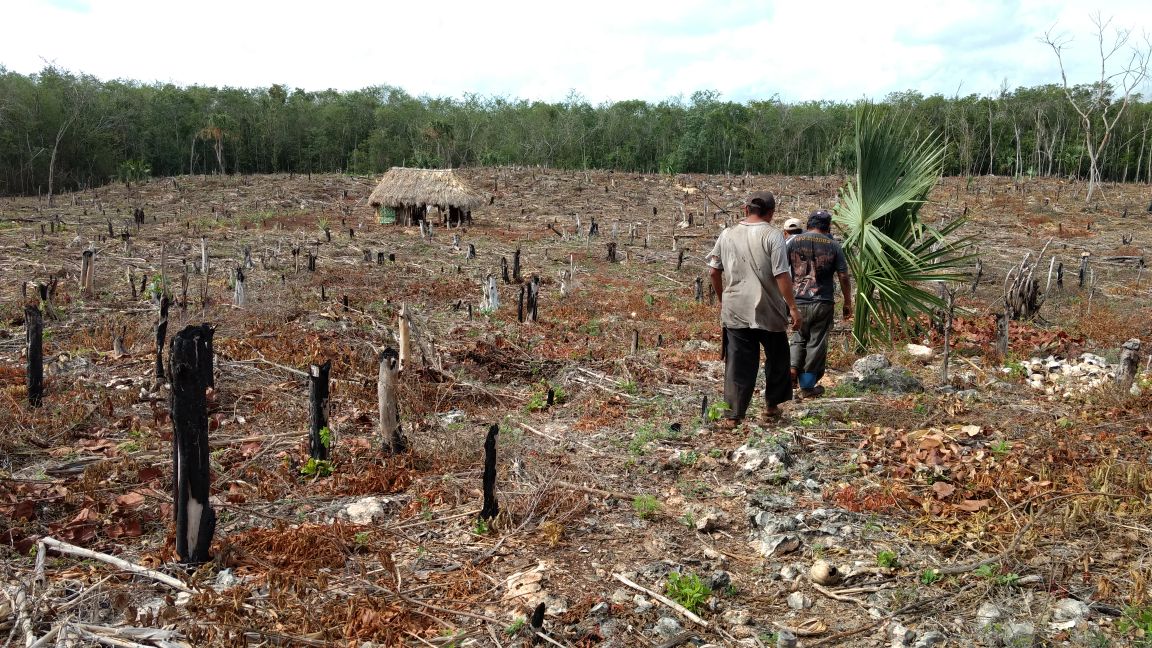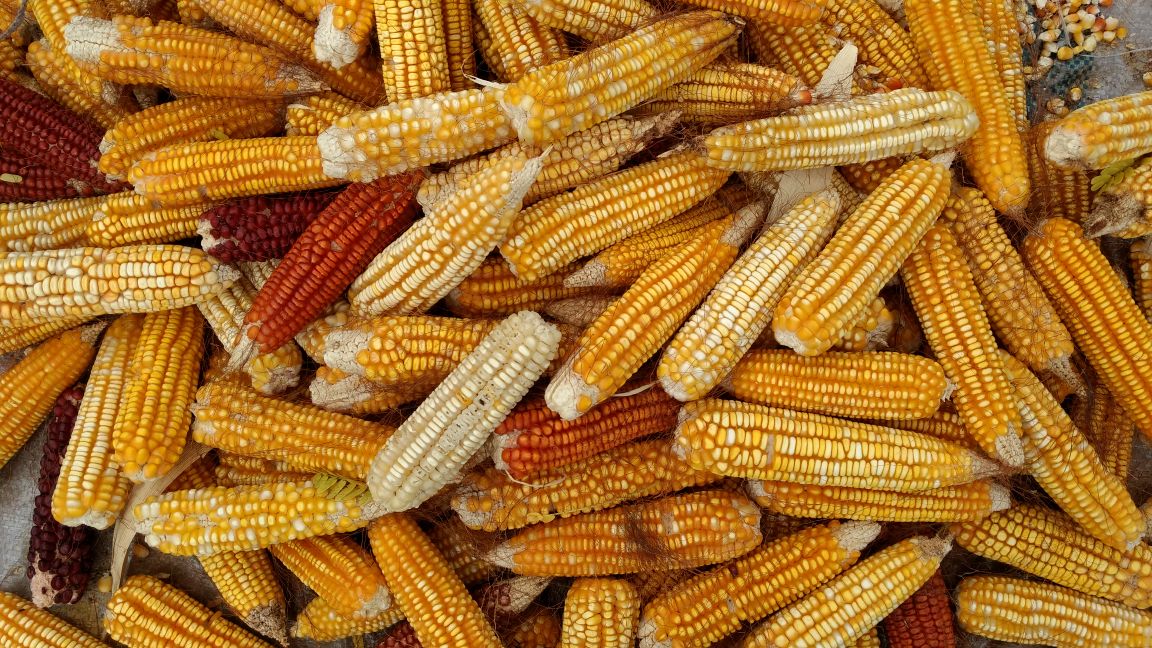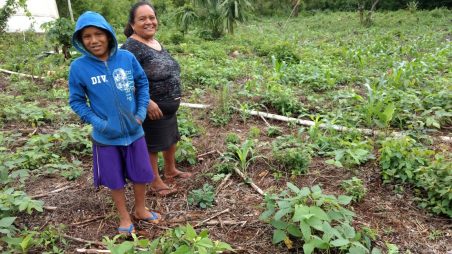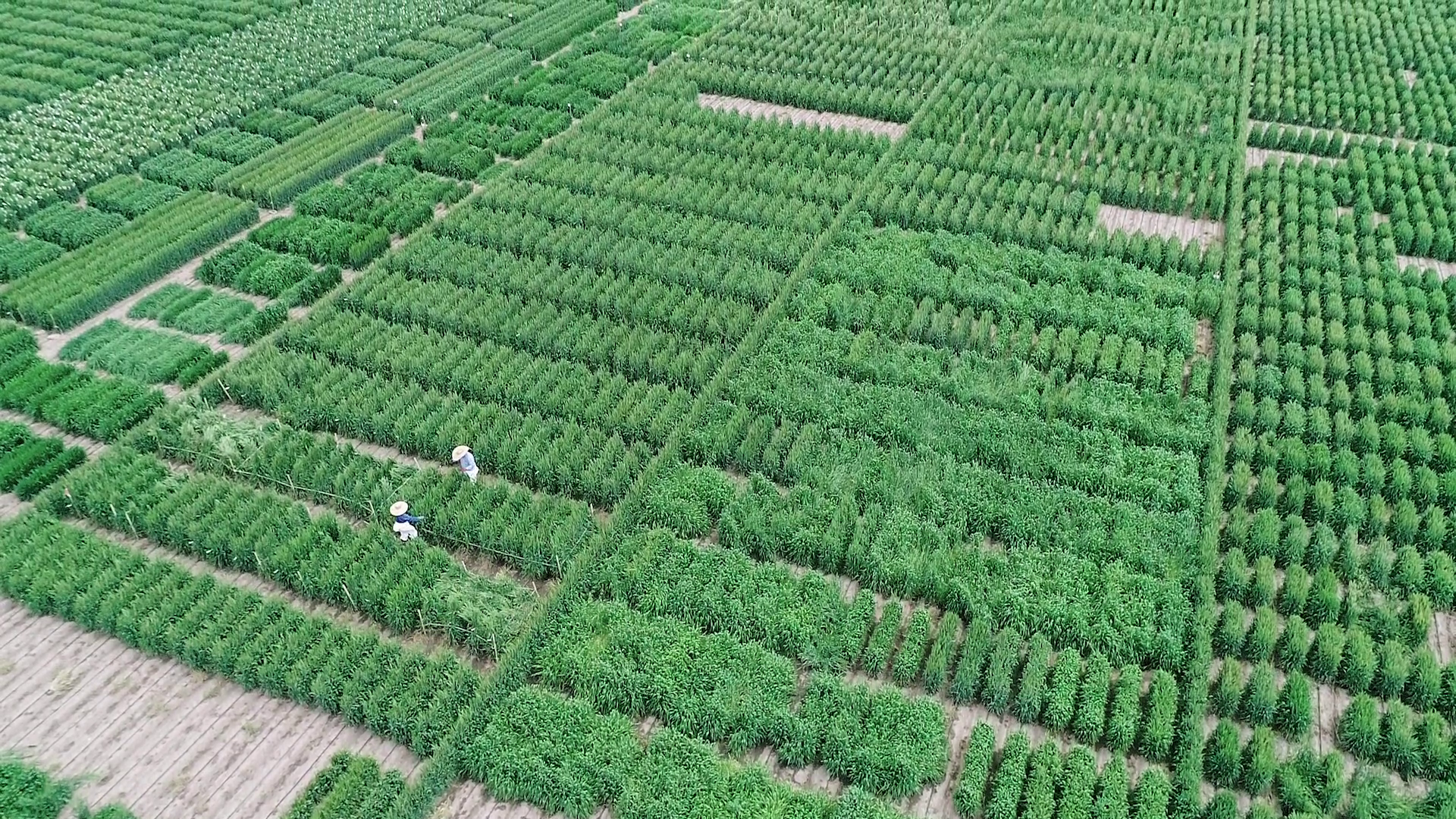
MEXICO CITY (CIMMYT) — The Yucatan Peninsula in Mexico has been hard hit by drought and extreme weather events related to climate change in recent years, exacerbating local poverty and food insecurity. In addition, slash-and-burn agriculture techniques have led to environmental degradation and contribute to climate change. The International Maize and Wheat Improvement Center (CIMMYT) is working to help indigenous Mayan farming families in the Yucatan peninsula adapt to and mitigate climate change, increasing maize yields and food security while minimizing negative environmental impact. This comes as world leaders mull a crucial decision on agriculture at the UN Climate talks in Bonn, a decision that could support farmers everywhere to take similar actions.
Maize is the backbone of diets in the Yucatan Peninsula, and has sustained indigenous Mayan families for millennia. It is grown as part of the “milpa,” a pre-hispanic intercropping system that revolves around the symbiotic relationship of maize, beans and squash.
Traditionally, the milpa system has involved clearing new land for farming using the slash and burn method. However, after two to three years, the soils begin to deteriorate and new land must be cleared. These practices have contributed to deforestation, increased CO2 emissions, and loss of invaluable local biodiversity.
In the Yucatan Peninsula, climate change has begun to threaten milpa agriculture. The rains have been later and shorter every year, reducing maize yields. As it has become more difficult to make a living from agriculture, young people have been forced to migrate to find work. Farmers have also lost seeds of their traditional maize varieties when they have been unable to harvest after severe drought.
A new CIMMYT project, Milpa Sustentable Yucatan Peninsula, is helping farming families increase their maize yields through sustainable, inclusive solutions. The Project, which means “sustainable milpa” in Spanish, is working to help farming families identify the best soils in their communal land and incorporate sustainable intensification and conservation agriculture (CA) practices to improve soils in order to prevent deforestation and mitigate climate change.
The project has a strong social inclusion component and works to make sure that women and youth are included and prioritized in capacity development opportunities and decision-making processes. “As milpa is a family system, women and youth must be included in order to attain impact,” said Carolina Camacho, principal researcher on social inclusion at CIMMYT. “Complex challenges such as climate change require social change and inclusion of traditionally marginalized groups such women and youth in order for mitigation to be successful.”
Farming families are taught CA techniques such as zero tillage that help prevent erosion and water runoff. This increases soil health and uses water more efficiently, which helps maize better survive drought and allows farmers to farm the same land for many years without resorting to deforestation or burning.

“Farmers used to harvest 500 kilograms of maize per hectare. Now, with techniques they have learned from CIMMYT, they are harvesting up to 2 tons per hectare,” said Vladimir May, technical leader of the Milpa Sustentable Yucatan Peninsula project. The project has also helped farmers increase yields by identifying natural inputs that can be integrated into an integrated pest and fertility management strategy This allows farming families to sustainably increase their maize yields despite limited inputs and resources.
The native maize grown by farmers in the Yucatan Peninsula adapted to its local environment over centuries of selection by farmers to perform well despite poor soils and other challenges. However, climate change has threatened the survival of this maize genetic diversity. Some farmers lost all of the seed of their traditional maize varieties when they were unable to harvest anything after extreme drought. Others have found that their traditional varieties do not perform as well as they had due to environmental stress related to climate change.
CIMMYT is working to help farmers replace stores of traditional maize seed they have lost due to drought and climate change. The CIMMYT maize seed bank safeguards over 28,000 maize varieties for the benefit of humanity, including seeds that are native to the Yucatan Peninsula. Milpa Sustentable Yucatan Peninsula has worked with the seed bank to find farmers original varieties, restoring a priceless component of many families’ food security, culture and biodiversity.
The project has also helped farmers increase their yields through participatory variety selection. By crossing farmers’ native varieties with other native maize varieties that are more resistant to drought or climate change, farmers can sustainably increase maize yields without losing the qualities they love about their traditional varieties. Women have played a key role in this participatory variety selection, because as they process and prepare all of the food grown by the family, they have intimate knowledge of the characteristics the maize must have to perform well and feed the family.

Poverty and food insecurity in the region have meant that migration has been a necessity for many. With new technologies and support from CIMMYT, women and youth are beginning to see that they may have a future in farming, despite the challenge of climate change. “Now that they see how much maize and other cash crops can be produced with sustainable technologies, young people are deciding to stay,” said Maria Boa, a consultant working with the project. “As youth are sometimes more accepting of new technologies, young farmers in the Yucatan play a crucial role in climate change mitigation and adaptation. Inclusion of women and youth is necessary to make a positive change in these communities.”
These and other farmers around the world will play an important role in fighting climate change, by reducing emissions from farming. While a majority of countries, including Mexico, have committed to reducing the climate footprint of agriculture, world leaders must now decide how to best support and finance these actions.
The Milpa Sustentable Yucatan Peninsula project is operated and supported by the International Maize and Wheat Improvement Center (CIMMYT), the government of Mexico through the SAGARPA program Sustainable Modernization of Traditional Agriculture (MasAgro) CitiBanamex, Fundación Haciendas del Mundo Maya and the CGIAR Research Program on Maize (MAIZE). The project is operated with the support of local partners, non-governmental organizations and the different levels of the Mexican government.
At this year’s UN Climate Talks, CIMMYT is highlighting innovations in wheat and maize that can help farmers overcome climate change. Click here to read more stories in this series and follow @CIMMYT on Facebook and Twitter for the latest updates.
 Climate adaptation and mitigation
Climate adaptation and mitigation 